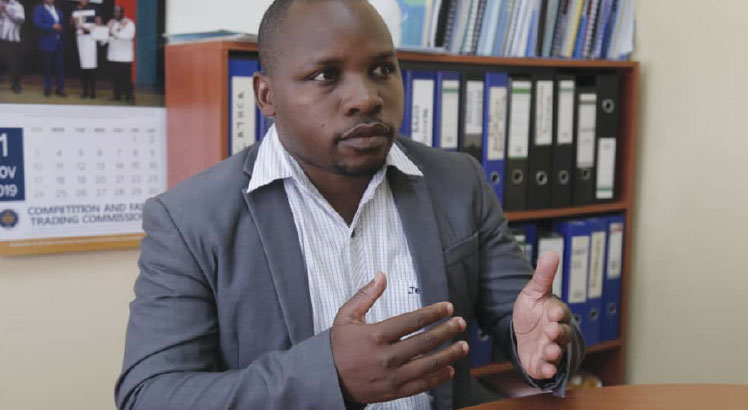Let’s hold duty-bearers accountable—Chibwana
In a democracy, Civil Society Organisations are critical as they advocate for human rights, the needs and priorities of the local citizens especially the marginalised groups and expose government deficiencies. They help to resolve conflict, contribute to social innovation and provide checks and balances. However, different quarters have observed complacency among the civil society in Malawi in advancing these responsibilities. Our reporter PRECIOUS KUMBANI caught up with Catholic Commission for Justice and Peace national coordinator BONIFACE CHIBWANA. Excerpts.

What’s your take on this?
These sentiments are welcome. It is important to remember that CSOs are just like any other organisation that might benefit greatly from some constructive criticism. In fact, establishing checks and balances is essential to ensuring that CSOs can act as effective representatives of the communities they serve and effect constructive change. CSOs have human frailties and institutional flaws, just like everyone else. Of late, CSO have been at the forefront of advocating rights of asylum seekers, older persons, persons with albinism, youth unemployment, flows in extractive governance, corruption and many other areas. There have been calls for political accountability and financial discipline. However, the vigour of which political leaders have been held accountable has drastically reduced. We need an enhancement on social accountability.
What could have contributed to the reduced energy among the CSOs?
Internal factors within CSOs have contributed to this perceived shift. The emergence of global events such as Covid-19 and the Russia-Ukraine war has led to a redirection of funding from human rights and advocacy cycles towards humanitarian aid efforts. The same with local activities such as cyclones and cholera outbreaks. Consequently, the amplification of voices against various ongoing issues has been affected. It is also important to acknowledge that CSOs continue to suffer from external factors. This ever-present danger is plain to see every day, as prominent CSO leaders are frequently cast in mysterious government posts designed to muzzle their advocacy work.
What’s your take on CSOs’ relationship with governments?
There has been an obvious effort by the current government to impede the work of CSOs through the passage of restrictive legislation like the NGO Amendment Bill. Regardless, CSOs are tenacious in the face of adversity and continue to play a significant role in advocating for transparency, human rights, and social justice. Recognising the importance of reflection and learning during periods of slowdown is vital for the growth and effectiveness of civil society organisations (CSOs). These moments provide opportunities for introspection, strategic reevaluation, and re-energising efforts to tackle challenges.
What are the negative impacts of not having vibrant CSOs in a democracy?
In countries struggling with persistent concerns of irresponsible governance like Malawi, CSOs play a crucial role as checks and balances. They are essential in ensuring that governments are held to account. CSOs continue to fight back against outmoded policies, laws, practices, and strategies even in more developed democracies. Their activism gives a voice to the most silenced and emphasises the needs of the most vulnerable. There can be no checks and balances to protect democratic values in a society when CSOs are weak. We need vibrant CSOs in the country to build a strong civic culture.
What challenges are CSOs facing in the country?
As previously stated, CSOs continue to face formidable challenges, with lack of funding and negative external interferences taking the forefront. Securing sustainable funding proves arduous due to donor priorities misaligning with CSO goals, economic fluctuations impacting contributions, and overreliance on specific donors. Moreover, CSOs continue to grapple with restrictive government regulations, political pressures, stigmatisation, security threats, and inadequate legal protections, hindering their operations and effectiveness.
Are young people today interested in issues to do with governance and human rights promotion?
The past years have witnessed a concerning rise in human rights and advocacy issues, and notably, the youth in Malawi have increasingly recognised their pivotal role in reshaping the narrative. However, a troubling aspect remains the absence of sufficient initiatives to foster and groom youth leaders. The lack of adequate support and platforms for young leaders hampers their potential to drive positive change in society, and addressing this gap becomes crucial to harnessing the full potential of the youth and empowering them to be effective advocates for human rights and social progress in Malawi.
What’s your advice to the citizenry?
Holding duty-bearers accountable is for us all. Recognising the significance and participation of each one of us in holding government accountable is not limited to CSOs alone. Everyone should stand up and hold duty-bearers accountable at their own level. We cannot stand aside and watch injustice thrive in the country. We need an informed citizenry for the country to have robust social accountability mechanisms.





